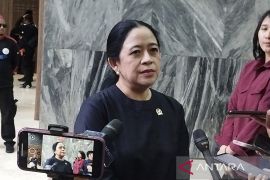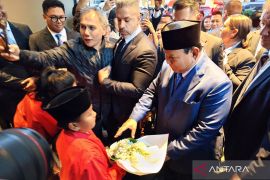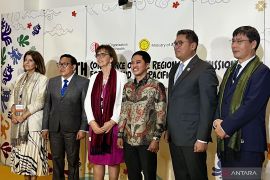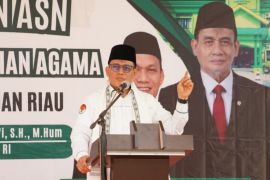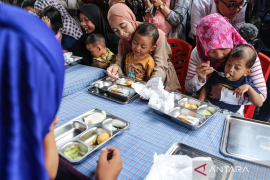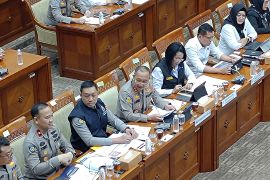"Indonesia is the biggest country in the ASEAN, in terms of population and size of the economy, and I think Indonesia will have a major responsibility of maintaining ASEANs unity and promoting ASEAN integration," Sunaga stated at the event to commemorate the 49th ASEAN Anniversary here on Monday.
Sunaga also highlighted ASEANs role in maintaining peace and stability in the region, particularly with regard to issues of territorial disputes, including the South China Sea and Senkaku Island, as well as the escalating tensions in the Korean Peninsula.
"I think the most important thing for ASEAN and Japan is that we need to always stand united and send the same message to the international community, particularly to the related countries, that a peaceful solution based on the international law is very important," he affirmed.
The Japanese ambassador emphasized that Japan will always respect the centrality of the ASEAN, which is the principle that the Southeast Asian grouping of 10 countries should remain at the center of regional cooperation in addressing regional or common global issues.
"The ASEAN is playing an important role in upholding peace and stability in the region, and Japan always respects the centrality of the ASEAN," he stressed.
Currently, the ASEAN is facing tough challenges related to conflicts and disputes among countries in the region, including the dispute between some ASEAN member countries and China over territory in the South China Sea, North Korean missiles trials, as well as the escalating tensions between China and Japan after some Chinese vessels equipped with a long-range radar sailed near the disputed Senkaku Island.
However, escalating tensions in the East Asian region occurred after regional countries, including China, North Korea, and Japan, met at the East Asian Summit organized as part of the ASEAN ministerial meetings in Vientiane, Laos, in July.
Regarding the issues, Foreign Affairs Minister Retno Marsudi had noted in a separate interview that Indonesia would always remind all countries that the settlement of differences or disputes between countries should be regulated by rational, effective, and sufficiently flexible procedures, avoiding negative attitudes that may endanger or hinder cooperation.
The term is one of the main objectives of the ASEAN Treaty of Amity and Cooperation, signed in 1976, which not only binds the ASEAN members but also countries attached to the ASEAN.(*)
Editor: Heru Purwanto
Copyright © ANTARA 2016
